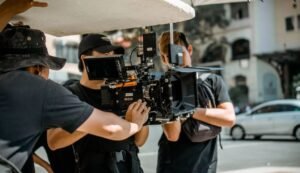AI Content Ownership
Artificial Intelligence (AI) has rapidly advanced in recent years, revolutionizing various industries. One area where AI is making a significant impact is in content creation. With AI systems capable of generating high-quality and coherent content, questions arise about the ownership and rights surrounding AI-generated works. This article explores the concept of AI content ownership, the legal implications, and potential challenges.
Key Takeaways
- AI-generated content raises questions about ownership and intellectual property rights.
- Legally defining ownership of AI-generated content is complex and faces challenges.
- Existing intellectual property frameworks face limitations in addressing AI-related ownership issues.
- Clear guidelines and regulations are needed to establish ownership rights and protect creators and users of AI-generated content.
- The collaborative efforts of legal experts, AI developers, and policymakers are crucial in shaping future policies on AI content ownership.
As AI systems advance, they’re becoming increasingly capable of producing content that is indistinguishable from human-generated content. **This opens up a whole new realm of opportunities for businesses and content creators**. However, it also raises fundamental questions about who owns AI-generated content and the associated intellectual property rights.
Ownership of AI-generated content brings about legal complexities. **While traditional content creation involves human authorship and is typically subject to copyright protection, AI systems blur the lines of authorship**. Determining whether the ownership resides with the creators, the AI system, or other entities involved becomes a challenge. Legal frameworks will need to be clarified to address these issues and provide creators with the necessary rights and protections.
Intellectual property frameworks have not yet evolved to fully encompass the complexities of AI-generated content ownership. **Copyright laws, for instance, often attribute ownership to the creator, but how does that work when the creator is an AI system that trained on vast amounts of data**? Some argue that the training data and the developers who built the AI system should have a stake in the ownership. *Defining ownership rights requires a thorough reevaluation of existing laws and the exploration of new legal solutions*.
Challenges in Defining Ownership
Establishing clear ownership rights for AI-generated content presents challenges that need to be addressed. Here are some of the key challenges:
- Authorship Attribution: Determining who should be recognized as the author of AI-generated works when the system itself creates the content.
- Data Source Impact: Understanding the implications of using copyrighted materials as training data for AI systems and the potential infringement on existing intellectual property rights.
- Collaborative Creation: Addressing the collaborative processes where humans and AI systems work together to create content, and the allocation of ownership in these cases.
- Evolution and Adaptation: Considering how the ongoing evolution and adaptation of AI systems may impact ownership rights, especially when AI systems autonomously modify or update their own code.
Table 1 illustrates the key challenges in defining AI content ownership:
| Challenges in Defining Ownership |
|---|
| Authorship Attribution |
| Data Source Impact |
| Collaborative Creation |
| Evolution and Adaptation |
Current approaches towards resolving AI content ownership issues require collaborative efforts from legal experts, AI developers, and policymakers. **Creating clear guidelines, regulations, and frameworks will help protect the rights of both creators and consumers of AI-generated content**. By ensuring fair ownership structures, innovators will be encouraged to embrace AI’s potential to generate high-quality content while respecting existing intellectual property laws.
AI-generated content ownership is a topic that demands attention as the role of AI in content creation continues to expand. **Without proper regulations and guidelines in place, the potential for disputes and legal challenges rises**. As technology evolves, it is essential that we adapt our legal frameworks to accommodate these advancements and strike a balance between incentivizing innovation and protecting creators and consumers alike.
The Future of AI Content Ownership
The future of AI content ownership is intertwined with ongoing discussions and collaborations in the legal and technological realms. To ensure a fair and effective system, policymakers need to carefully consider several factors:
- Legislative Updates: Adapting and updating existing intellectual property laws to encompass the nuances of AI-generated content.
- Collaborative Dialogues: Encouraging discussions between legal experts, AI developers, content creators, and industry stakeholders to contribute to the formation of comprehensive regulations.
- Standardization of Ownership: Establishing standard frameworks that clarify the ownership of AI-generated content and provide guidance on attribution and rights.
Table 2 highlights the factors shaping the future of AI content ownership:
| Factors Shaping the Future of AI Content Ownership |
|---|
| Legislative Updates |
| Collaborative Dialogues |
| Standardization of Ownership |
With the rapid growth of AI technology, it is imperative to address AI content ownership challenges proactively. By fostering collaboration between legal experts, policymakers, and technology innovators, we can shape a future where AI-generated content is protected, fairly attributed, and fosters continued innovation. The ongoing efforts to address AI content ownership will play a crucial role in shaping the future landscape of creative industries and intellectual property rights.
Common Misconceptions
AI Content Ownership
There are several common misconceptions surrounding AI content ownership that often lead to confusion and misunderstanding. These misconceptions can impact how content creators, consumers, and businesses perceive ownership and usage rights. It is important to address these misconceptions to promote a better understanding of the topic. Let’s explore some of these misconceptions:
Misconception 1: AI automatically owns the content it produces
- AI is a tool created by humans and does not have legal rights or ownership
- Content created by an AI is generally regarded as a work made by the human who trained or programmed the AI
- Ownership of AI-generated content typically rests with the individual or organization that owns the AI
Misconception 2: AI-generated content is always in the public domain
- AI-generated content, like any other form of creative work, may be protected by copyright laws
- Public domain status depends on various factors, like the jurisdiction, nature of the content, and the intentions of the content creator
- AI-generated content can still be subject to intellectual property rights and licensing agreements
Misconception 3: AI can autonomously claim ownership over content it consumes
- AI systems do not have the ability to claim ownership over content without explicit instructions from their creators
- Ownership rights lie with the creators of the AI, and they hold responsibility for defining AI behaviors and actions
- AI is a tool used to assist humans in creating, analyzing, and processing content, rather than an independent entity with its own ownership rights
Misconception 4: AI-generated content is not protected by fair use
- AI-generated content can potentially fall under fair use exceptions, depending on the specific circumstances and purpose of use
- Fair use is determined by balancing the four factors: purpose, nature, amount, and effect of the use on the original work
- AI content may still require proper attribution and compliance with fair use guidelines, similar to human-generated creative work
Misconception 5: AI content can be freely used without permission
- AI content ownership and usage are subject to existing legal frameworks, including intellectual property laws
- Using AI-generated content without permission may infringe on copyrights and other applicable rights
- Obtaining proper licenses and permissions is necessary to ensure legal and ethical use of AI-generated content
Introduction
Artificial Intelligence (AI) has revolutionized the field of content ownership, creating new challenges and opportunities for creators and consumers alike. This article explores ten fascinating aspects related to AI content ownership, providing insightful data and information that sheds light on this evolving landscape.
Influence of AI on Content Ownership
AI has significantly impacted the way content is created, shared, and protected. The following table illustrates the different sources of AI-generated content and their ownership:
| Content Type | Ownership |
|---|---|
| Automated news articles | Owned by AI systems |
| AI-generated music | Owned by AI developers |
| Social media posts generated by AI | Owned by individuals posting the content |
Copyright Challenges in an AI Era
AI content creation has raised complex copyright issues. The next table examines the copyright challenges faced due to AI-generated content:
| Challenge | Description |
|---|---|
| Ownership attribution | Determining the rightful owner of AI-generated content |
| Derivative works | Legal implications of using AI-generated content in new creations |
| Fair use and AI-generated content | Understanding fair use exceptions when AI is involved |
AI and Plagiarism Detection
AI can also play a crucial role in detecting instances of plagiarism within various content types. The subsequent table sheds light on AI-powered plagiarism detection methods:
| Plagiarism Detection Method | Description |
|---|---|
| Text-based plagiarism detection | Analyzing textual similarities and identifying potential cases of plagiarism |
| Image-based plagiarism detection | Comparing visual content to uncover plagiarized images |
| Audio-based plagiarism detection | Identifying instances of copied audio content through AI algorithms |
AI and Content Ownership Rights Management
AI technology offers solutions for managing content ownership rights. The subsequent table explores the different tools used for this purpose:
| Ownership Rights Management Tool | Description |
|---|---|
| Watermarking | Embedding unique digital markers to identify content ownership |
| Blockchain-based registries | Utilizing decentralized networks to establish immutable ownership records |
| Artificial intelligence algorithms | Automated systems for tracking and managing content ownership |
AI and Content Fraud Detection
AI can be instrumental in identifying fraudulent content. The subsequent table showcases various types of AI-enabled content fraud detection:
| Content Fraud Detection Technique | Description |
|---|---|
| Deepfake detection | Identifying manipulated content using AI algorithms |
| Disinformation detection | AI-based methods to uncover misinformation and false claims |
| Automatic bot detection | Identifying and flagging automated accounts spreading fraudulent content |
AI’s Impact on Content Monetization
AI has transformed the traditional models of content monetization. The following table presents distinct AI-driven monetization methods:
| Monetization Method | Description |
|---|---|
| Targeted advertising | Using AI algorithms to customize ads based on user preferences |
| Subscription services | AI-powered platforms offering premium content for a fee |
| Content sponsorships | AI-driven matchmaking between brands and content creators |
AI and Data Privacy
AI’s reliance on data raises concerns surrounding privacy. The following table explores the relationship between AI and data privacy:
| Privacy Concern | Description |
|---|---|
| Algorithmic bias | Ensuring AI systems do not perpetuate discriminatory practices |
| User data protection | Safeguarding personal information collected by AI-driven platforms |
| Data anonymization | Stripping personally identifiable information from shared data |
AI and Content Authenticity Verification
AI can be employed to verify the authenticity of various types of content. The subsequent table reveals AI-enabled authenticity verification techniques:
| Authenticity Verification Technique | Description |
|---|---|
| Metadata analysis | Examining metadata to verify the source and integrity of content |
| Image forensics | Using AI to identify signs of manipulation or tampering in images |
| Textual credibility analysis | AI algorithms determining the reliability of textual content |
AI in Content Curation and Recommendation
AI-powered content curation and recommendation systems have gained popularity. The subsequent table showcases the key categories of AI-driven curation and recommendation techniques:
| AI Technique | Description |
|---|---|
| Collaborative filtering | Recommendations based on users with similar preferences |
| Content-based filtering | Recommendations based on analysis of content features and attributes |
| Hybrid recommendation systems | Combining multiple approaches for more accurate suggestions |
Conclusion
As AI continues to shape the landscape of content ownership, various challenges emerge regarding copyright, plagiarism, fraud, monetization, privacy, authenticity, and curation. Navigating this evolving terrain requires careful consideration and innovative solutions. By exploring the ten fascinating aspects of AI content ownership illustrated above, we gain valuable insights into this groundbreaking field and the opportunities and responsibilities it presents.
Frequently Asked Questions
What is AI Content Ownership?
AI Content Ownership refers to the legal and moral rights associated with content created by artificial intelligence systems. It explores the ownership and copyright issues surrounding content generated by AI algorithms.
Who owns the content created by AI?
Ownership of content created by AI can be a complex issue. In most cases, the individual or organization that owns the AI system responsible for generating the content is considered the owner. However, there can be exceptions depending on the specific circumstances and applicable laws.
Are there any legal frameworks governing AI content ownership?
Currently, there are no specific legal frameworks dedicated solely to AI content ownership. However, existing intellectual property laws, such as copyright laws, can be applied to protect AI-generated content in certain cases.
Can an AI system be granted copyright?
As of now, AI systems cannot be granted copyright, as copyright protection is typically reserved for intellectual creations made by humans. AI algorithms are seen as tools rather than creators themselves.
What are the ethical considerations of AI content ownership?
The ethical considerations of AI content ownership revolve around issues such as transparency, accountability, and fairness. It is important to ensure that AI-generated content is properly attributed, that its creators are acknowledged, and that potential biases or unintended consequences are addressed.
Can AI-generated content be used without permission?
Using AI-generated content without permission can be a potential violation of the law, depending on the nature of the content and the applicable legal framework. It is advisable to seek permission and adhere to relevant laws and regulations before using such content.
Are there any limitations on AI content ownership?
There can be limitations on AI content ownership, especially when it comes to sensitive or regulated domains. For example, in healthcare or legal sectors, content generated by AI systems may need to comply with additional regulations or be reviewed by human professionals for accuracy and compliance.
Can AI-generated content infringe on existing copyrights?
Yes, there is a possibility that AI-generated content can infringe on existing copyrights if it reproduces or incorporates copyrighted material without proper authorization. It is important to ensure that AI algorithms are trained on legally obtained and authorized data.
Are there efforts to establish guidelines for AI content ownership?
Yes, there are ongoing efforts by various organizations and legal experts to establish guidelines and frameworks for AI content ownership. These efforts aim to address the legal and ethical challenges associated with AI-generated content and ensure proper attribution and ownership rights.
How can content creators protect their rights in relation to AI-generated content?
Content creators can protect their rights by clearly stating ownership and usage terms in their agreements and licenses. They can also explore methods of watermarking or digitally signing their content to establish authenticity and deter unauthorized use.



